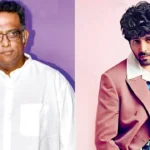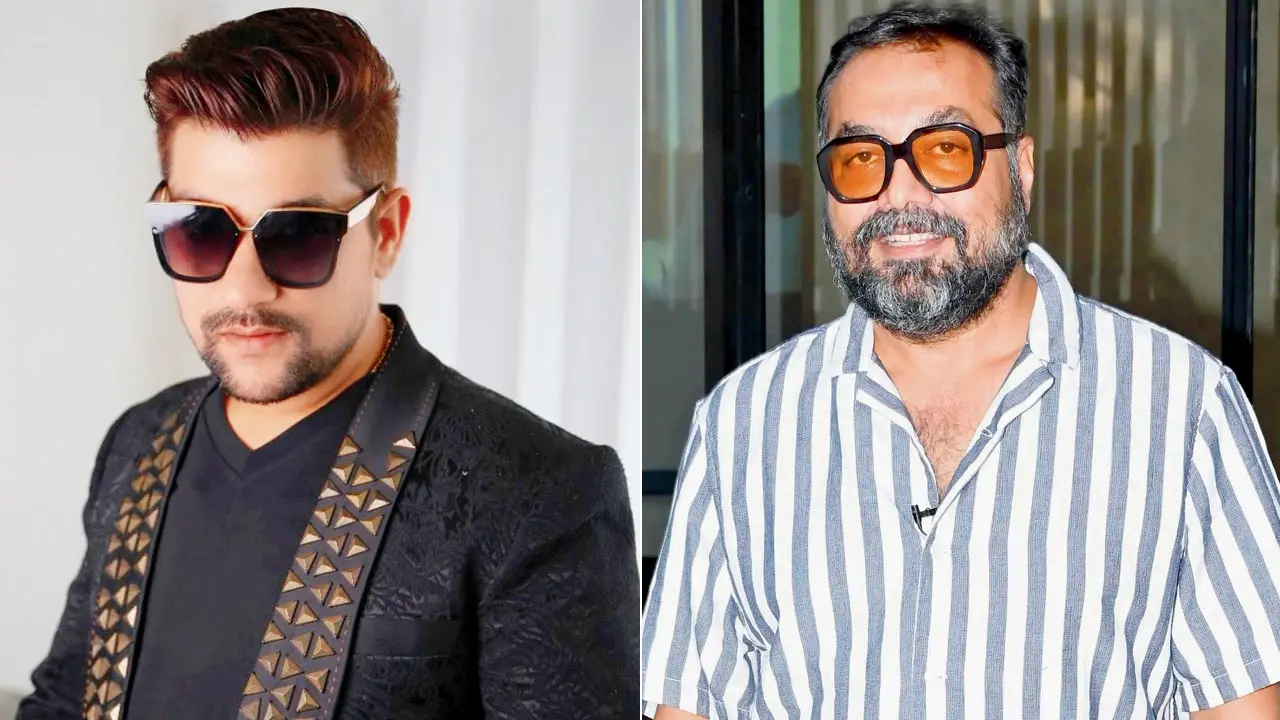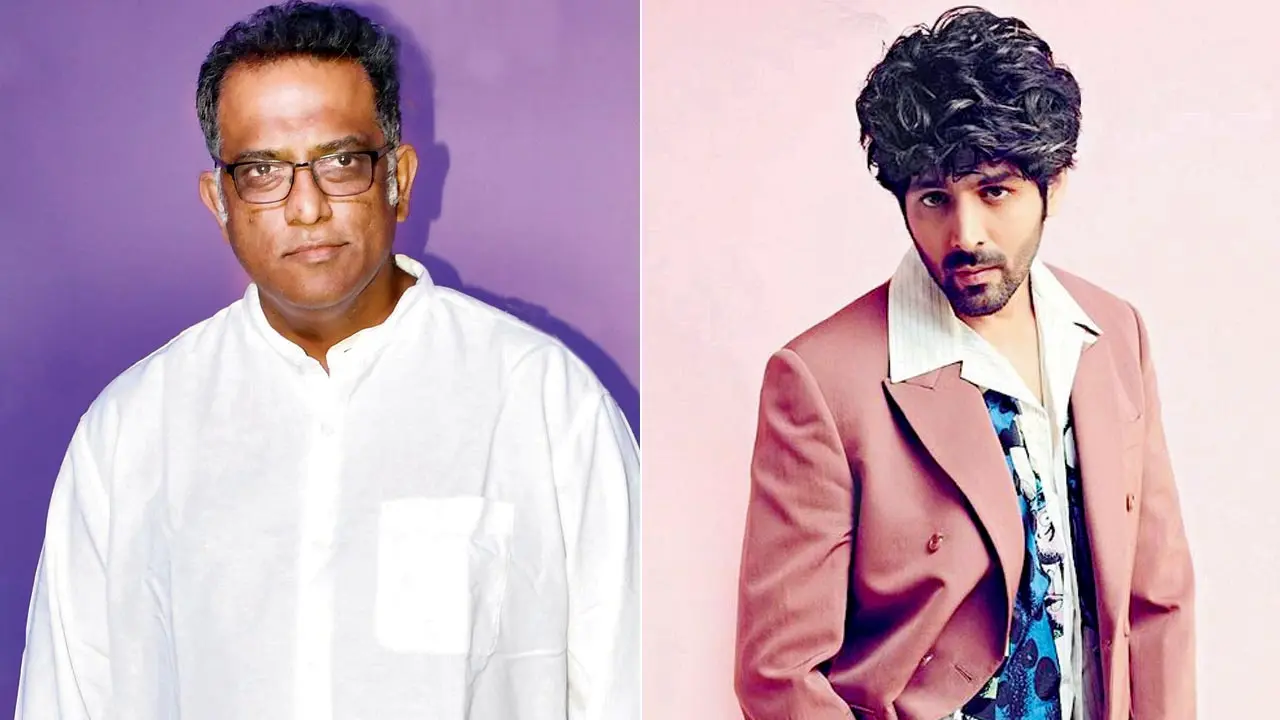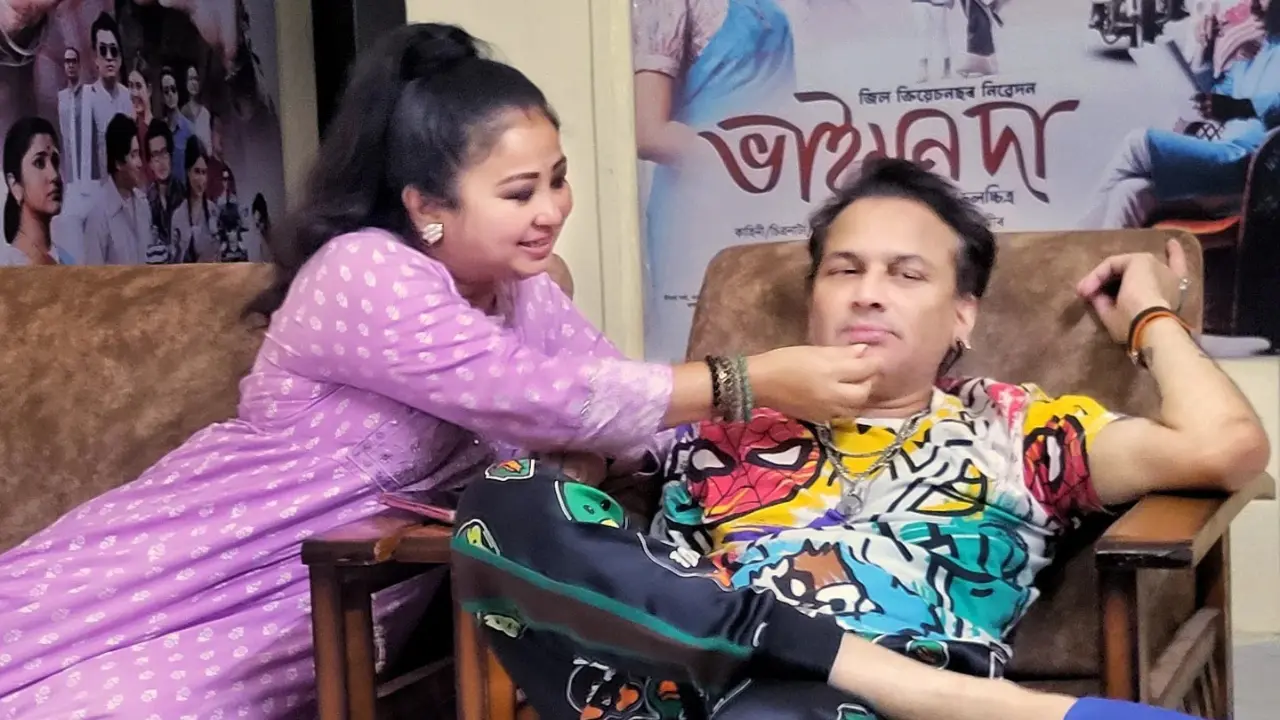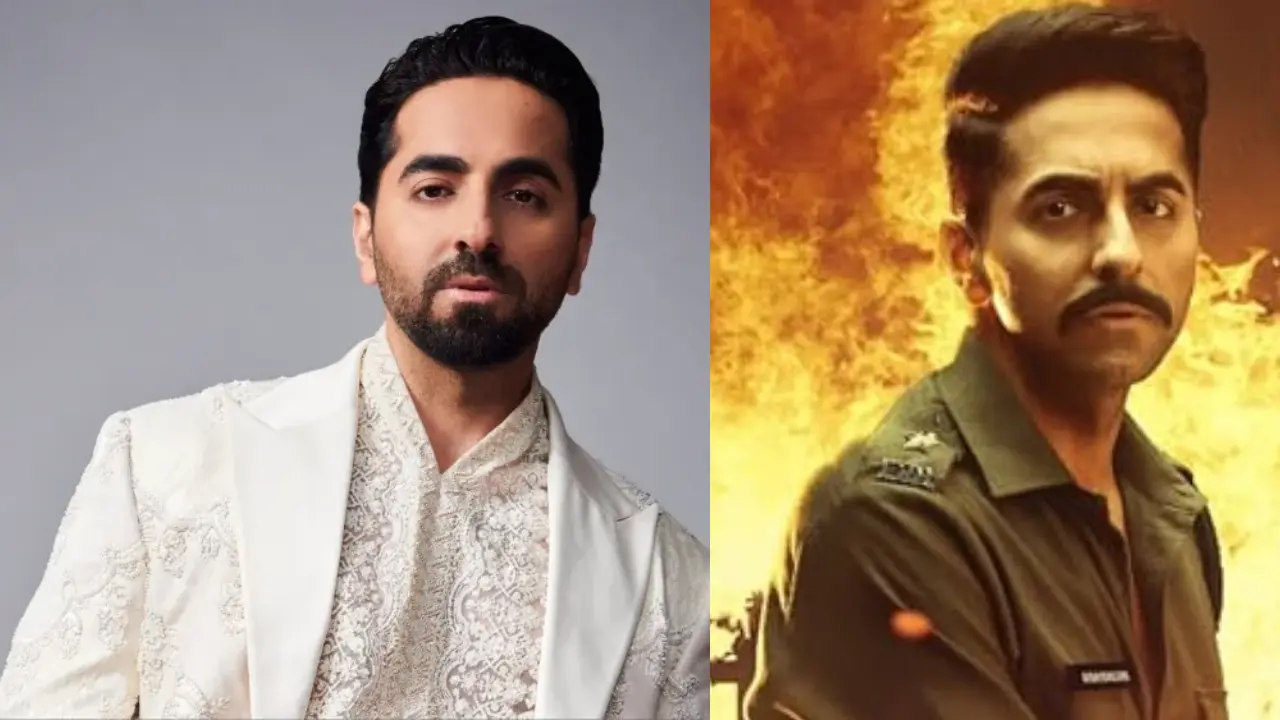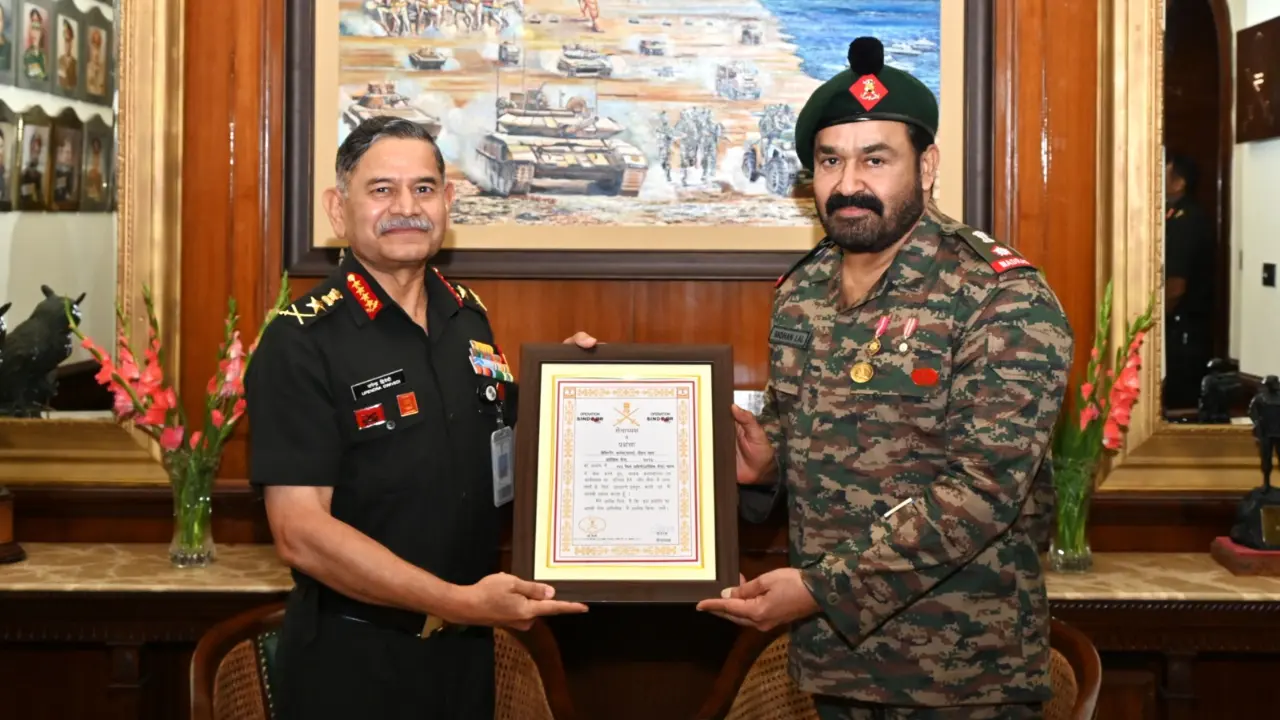Imagine meeting your idol to compose one song for him, and ending up scoring nine songs. Manan Bhardwaj finds himself in this delightful position with Anurag Kashyap’s latest release, Nishaanchi. His relationship with Kashyap goes way back. “He has been my idol,” says a beaming Bhardwaj, as he opens up about collaborating with the filmmaker, getting closure to his 2009 heartbreak, and why he prefers sitting alone in his room and scoring music over networking.
Excerpts from the interview.
Take me back to the first meeting you had with Kashyap for Nishaanchi.
Around one-and-a-half years ago, I got a call to compose only one song for the film. I had a Zoom call with Anurag sir, where he explained what he wanted. And today, I have composed nine songs for the film! Our wavelengths matched. Both of us are action-oriented and frank. So, collaborating became fun.
A still from ‘Nishaanchi’
What was the song that Kashyap called you for?
It was Jhule Jhule Paalna. But I made Neend Bhi Teri instead. The situation for this song was specially added in the film. Anurag sir told me, ‘After your songs, I had to increase the film’s length by 15 minutes’.
What’s the most unique part of working with Kashyap, whose films are known for their fresh soundscapes?
Anurag sir told me, ‘Manan, make songs not for me, not for the public, but for yourself. Make whatever you want to make and let me hear it.’ I kept giving him songs, and he kept putting them into situations. The songs and the film go hand-in-hand.
Also, Anurag sir has been my idol. In 2009, I drove from Delhi to Mumbai to meet him. We didn’t even have Google Maps then. When he says, ‘I added scenes because of Manan’s songs,’ it’s bigger than any award.
Were you able to meet Kashyap during your 2009 visit?
No. I was told by someone that Anurag sir needed a number of songs for his film, and I should come down. I took the whole set-up with me. I went to his office; he was not there. After that, I understood it was a lie. So, I stayed in Mumbai for a day. The next day, I promised myself that it will happen someday.
There is a timeless feel to your music, which is rare to find nowadays. Where do you think Hindi film music stands today?
In the Indian music scene, supply is way higher than consumption. How many songs can a person listen to? I myself hardly listen to one or two contemporary songs, otherwise I listen to the songs of Jagjit [Singh] saab and Nusrat Fateh Ali Khan saab. It’s our responsibility as composers to make the listeners engage with both old and new music. I try to make music that has meaning, where the listener is able to relive an emotion that they’ve felt in the past.
How do artistes stay true to their voice after success as it’s easy to get corrupted in the industry with expectations, competition, and fear of failure?
Artistes are corrupting themselves. I stay away from all this. I visit Mumbai only to meet a few special people and do official meetings. I never party here. Why do people visit top music directors’ houses for Ganpati? So that they can build contacts. Those singers haven’t understood that contacts will yield nothing. Instead, if you sit at home and make four songs, one of them may become a hit. The problem is artistes don’t want to work hard, instead they call it a struggle. Don’t you dare call hard work a struggle! Artistes are becoming their own enemies — they should focus on working hard and moving ahead. They shouldn’t harbour jealousy, nor should they unnecessarily expand their circle.
Nine
Songs Bhardwaj has composed in the film
Manan Bhardwaj’s hits
‘Arjan Vailly’ (‘Animal’)
‘Kashmir’ (‘Animal’)
‘Aaj Ke Baad’ (‘Satyaprem Ki Katha’)
‘Shiddat’ (‘Shiddat’)




